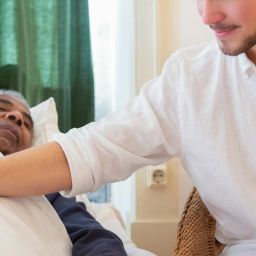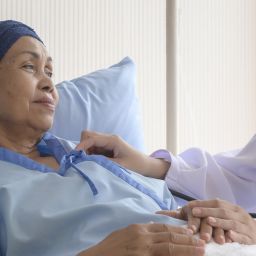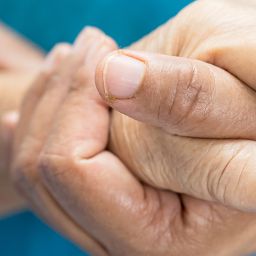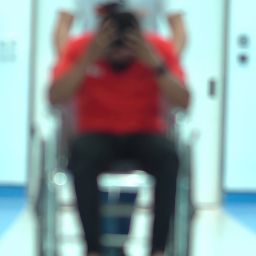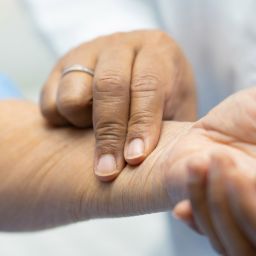The opioid crisis has caused immense damage in Baltimore, affecting numerous individuals and families. In response, faith-based organizations in the city have become crucial sources of support, offering both spiritual guidance and practical assistance. These organizations understand that addiction is complex, addressing not only the physical dependence but also the emotional and spiritual impact. By taking a compassionate and holistic approach, they help individuals in their journey to recovery, providing hope and a sense of community in challenging times. Their steadfast commitment to addressing all aspects of healing has made them invaluable in the fight against this epidemic.
In this article, we will shed light on the nature of opioids and the essential role faith-based organizations in Baltimore are playing in addressing this pressing public health crisis.
Understanding Opioid Addiction
Definition and Causes of Opioid
Opioid addiction is a serious, ongoing problem where people can’t stop using opioids even though it hurts them. It often starts with prescription painkillers but can lead to using dangerous street drugs like heroin. Things like family history, mental health struggles, and tough life situations can make someone more likely to become addicted. This devastating condition has had a major impact on communities across the United States. Faith-based organizations in Baltimore have stepped up to help people struggling with opioid addiction by offering support, resources, and hope.
Impact of Opioid on Individuals and Communities
Opioid addiction really messes people up. It can make you really sick, break up your family, and leave you with no money. Families are torn apart, and children grow up without stable parents. Communities also suffer, with increased crime rates, strained healthcare systems, and a decline in overall well-being. The economic burden of opioid addiction on society is immense, as it drains resources and reduces productivity.
Opioid Addiction Crises in Baltimore
The city has one of the highest rates of overdose deaths in the country, with opioids being the primary culprit. Tragically, this problem affects people of all ages, from young adults to older generations. Making matters worse, Baltimore faces significant challenges in addressing this epidemic, including limited access to healthcare, wide gaps between rich and poor people, and negative attitudes toward addiction. These obstacles make it difficult to provide the necessary help and support to those struggling with opioid addiction.
Role of Faith-Based Organizations
Definition and Types of Faith-Based Organizations
Historically, faith-based organizations have been at the forefront of social change, from the civil rights movement to addressing homelessness. Their deep roots in communities, coupled with a commitment to service, make them uniquely positioned to combat the opioid crisis. In Baltimore, these organizations are increasingly stepping up to offer support, hope, and practical assistance to those struggling with addiction. Their faith-based approach provides a holistic framework for recovery, addressing not only physical dependency but also spiritual and emotional well-being. By building trust and fostering a sense of community, faith-based organizations are proving to be invaluable allies in the fight against this devastating epidemic.
Counseling and Spiritual Guidance
Counseling is a vital component of the support provided by faith-based groups tackling the opioid crisis in Baltimore. Trained counselors work closely with individuals to uncover the underlying causes of their addiction, helping them understand the factors that contributed to their struggles. This process often involves exploring past traumas, coping mechanisms, and personal challenges. Alongside professional counseling, the spiritual guidance offered by these organizations provides individuals with a sense of purpose, hope, and community. By fostering a strong connection to their faith, many people find the inner strength and resilience needed to overcome addiction and rebuild their lives. This comprehensive approach to recovery addresses not only the physical addiction to opioids but also the emotional and spiritual traumas that often accompany addiction.
Support Groups and Community Building
Support groups are a cornerstone of recovery for many individuals struggling with opioid addiction in Baltimore. These gatherings offer a safe and supportive space where people can share their experiences, challenges, and triumphs without judgment. By connecting with others who have walked a similar path, individuals find a sense of belonging and understanding that is crucial for maintaining sobriety. Support groups also provide practical tools and coping strategies, helping members develop the skills needed to navigate life’s challenges without resorting to substance use. The camaraderie and encouragement fostered within these groups create a powerful network of support, empowering individuals to overcome addiction and build a fulfilling life in recovery.
Educational Workshops and Prevention Programs
Teaching people about the dangers of opioids is a big part of stopping addiction. Faith-based groups in Baltimore are holding special classes to help people, especially kids and families, understand the risks of using opioids. They’re teaching people how to say no to drugs and how to spot the signs of someone who might have a problem. By spreading the word, these groups hope to keep more people safe from getting hooked on opioids.
Partnerships with Healthcare Providers
Working together makes a big difference in helping people with opioid problems. Many faith groups in Baltimore are teaming up with hospitals, clinics, and rehabilitation centers to give people the best possible care. This means people get medical help along with the spiritual and emotional support they need. When people get help for their body and their mind, they have a much better chance of getting better. By combining these resources, communities can create a stronger support network for those struggling with addiction.
Challenges and the Way Forward
Despite their successes, faith-based organizations face significant challenges in helping people with opioid problems. Limited funding and resources often hinder their ability to expand programs and reach more individuals in need. Additionally, the complex nature of addiction and the stigma surrounding it can make it difficult to engage those struggling with substance use. However, with increased community support, strategic partnerships, and innovative approaches, these organizations can overcome these obstacles and continue to make a positive impact on the lives of countless individuals affected by the opioid crisis.
Conclusion
Faith-based organizations in Baltimore are leading the charge against opioid addiction, offering a unique blend of spiritual guidance and practical support. By providing comprehensive care, including counseling, education, and community support, these organizations address the multifaceted nature of addiction. Their unwavering commitment to the well-being of individuals and families affected by this crisis has made them invaluable assets in the community. Through continued collaboration and innovation, faith-based organizations will remain a beacon of hope for those seeking recovery. To effectively combat this epidemic, we must wholeheartedly support these organizations and their vital work.



